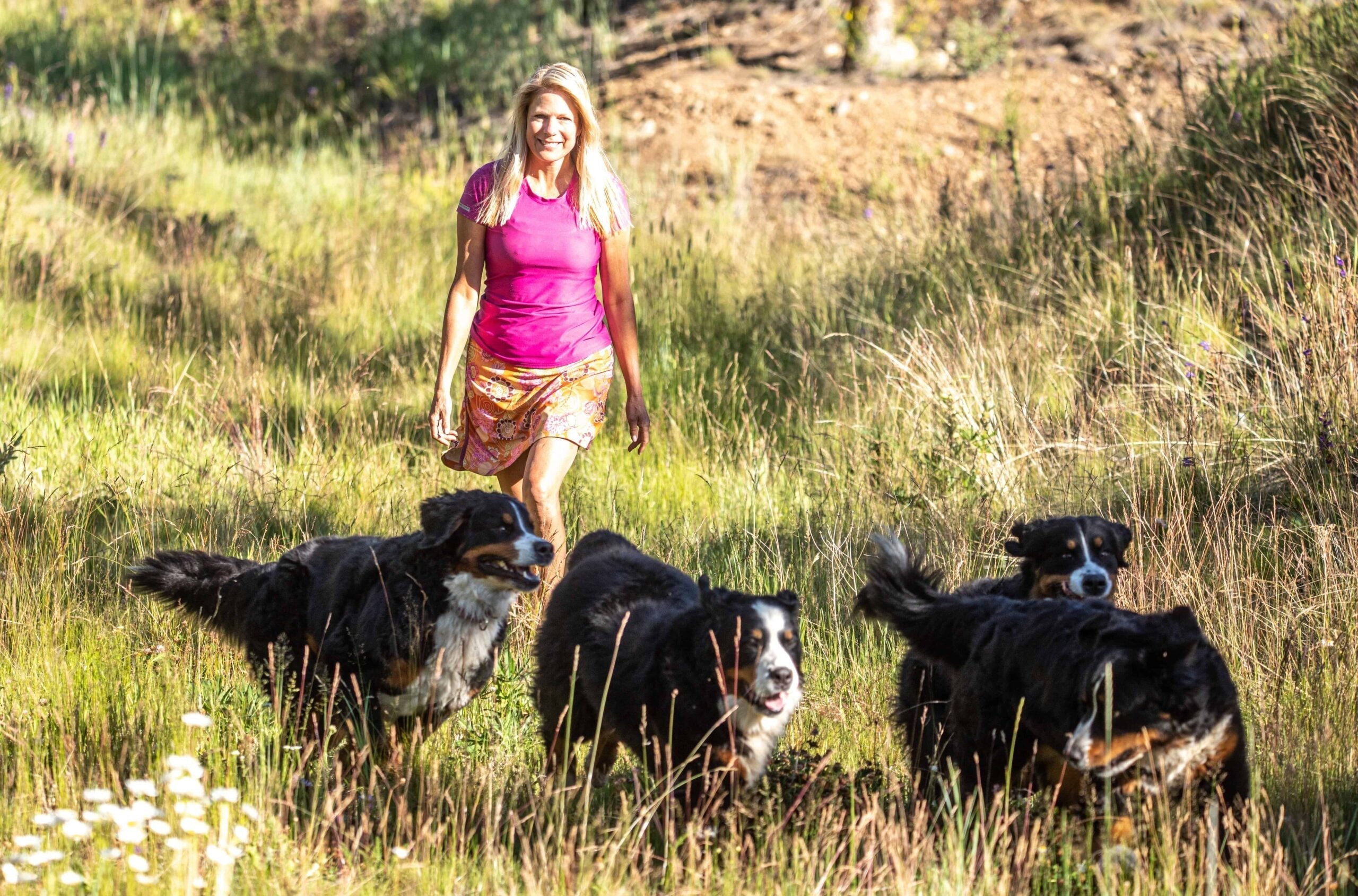
Can Dogs Eat Stuffing? How to Make Holiday Meals Dog-Safe
The holiday season is a time for family gatherings, delicious meals, and, of course, sharing moments with our furry friends. But when it comes to feeding our dogs, not everything on the holiday table is safe. Stuffing, a staple in many festive meals, is one such dish that can pose serious health risks to dogs. This article will delve into the reasons why your dog should avoid stuffing and provide tips on how to make holiday meals dog-safe.
Key Takeaways
- Stuffing often contains ingredients like onions and garlic that are toxic and unsafe to dogs.
- High sodium levels in stuffing can lead to health issues in dogs.
- Even small amounts of stuffing can cause gastrointestinal upset in dogs.
- Opt for plain, dog-friendly vegetables as a safe treat during holiday meals.
- Always consult your vet before introducing new foods to your dog's diet.
Understanding the Risks of Holiday Foods for Dogs
Why Stuffing is a No-Go for Dogs
Stuffing is a holiday staple, but not for pets. Onions and garlic are harmful to dogs, making stuffing problematic. These can harm red blood cells, causing anemia. Stuffing's high sodium and fat content can upset your dog's stomach and cause pancreatitis.
Common Ingredients in Stuffing That Harm Dogs
Let's break down the typical stuffing ingredients that can harm dogs:
- Onions and Garlic: Both can lead to anemia by damaging red blood cells.
- High Sodium Content: Causes excessive thirst and urination, and can lead to sodium ion poisoning.
- Fats and Oils: These can cause gastrointestinal upset and pancreatitis.
- Herbs like Sage: Can upset a dog's stomach.
Recognizing Symptoms of Food Toxicity in Dogs
If your dog does manage to sneak a bite of stuffing or other harmful foods, watch for these signs of food toxicity:
- Vomiting or Diarrhea: Common indicators that your dog’s stomach is upset.
- Lethargy: If your dog seems unusually tired or sluggish.
- Pale Gums: This could be a sign of anemia from onion or garlic consumption.
Keep a close eye on your dog during holiday gatherings. With so many tempting smells and foods around, it's easy for accidents to happen. If you suspect your dog has eaten something harmful, contact your vet immediately.
Being aware of the certain holiday foods that can be harmful to dogs is crucial to keeping your pet safe during the festive season. Avoiding these ingredients in your holiday cooking can prevent a trip to the emergency vet and keep your celebrations joyful for everyone.
Safe Alternatives to Traditional Holiday Dishes
Dog-Friendly Thanksgiving Treats
Thanksgiving is all about sharing, and that can include your furry friend too, but with a bit of caution. If you're wondering what your dog can safely nibble on, here are some ideas:
- Turkey: Eat boneless, skinless cooked turkey. Lean protein is good for dogs.
- Plain Vegetables: Steamed carrots, green beans, and sweet potatoes. These are healthy and safe without butter or seasoning.
- Pumpkin: Plain canned pumpkin (not pie filling) is easily digested and low in calories.
How to Prepare Dog-Safe Vegetables
Vegetables can be a healthy addition to your dog's diet, but preparation is key. Here's how you can make them safe and tasty:
- Wash and Peel: Always wash vegetables thoroughly and peel if necessary to remove any pesticides or dirt.
- Cook Lightly: Steam or boil vegetables until they're soft enough for your dog to chew easily. Avoid adding salt or butter.
- Cut Appropriately: Chop them into bite-sized pieces to prevent choking hazards.
Creating a Balanced Holiday Meal for Your Dog
Crafting a holiday meal for your dog doesn't have to be complicated. Focus on balance and moderation:
- Protein: Lean meats like turkey or chicken (without bones) should be the main component.
- Carbohydrates: Small portions of plain rice or potatoes can be added.
- Vegetables: Add a variety of dog-safe veggies for vitamins and fiber.
The Dangers of Feeding Dogs Table Scraps
Why Table Scraps Can Be Harmful
While feeding your dog table scraps may seem innocuous, it might actually harm him. Canines should not eat many human foods since they can get sick. Gravy and butter-laden mashed potatoes might irritate your dog's stomach or cause pancreatitis. Onions, garlic, and chocolate are harmful to dogs.
Identifying Unsafe Foods for Dogs
Here's a quick list of common table scraps that are unsafe for dogs:
- Chocolate: Contains theobromine, which is toxic and unsafe to dogs.
- Onions and Garlic: Can damage a dog's red blood cells, leading to anemia.
- Grapes and Raisins: Can cause kidney failure.
- Xylitol: An artificial sweetener that can lead to liver failure and hypoglycemia.
Keep these foods out of reach to ensure your dog's safety.
Tips for Preventing Accidental Ingestion
- Educate Your Guests: Make sure everyone knows not to feed your dog table scraps. It's easy for well-meaning guests to slip your pup a treat without knowing the risks.
- Create a Safe Space: Designate a dog-safe zone during meals where your pet can relax without the temptation of table food.
- Use Distraction Techniques: Keep your dog entertained with a safe chew toy or a dog-friendly treat during meal times to prevent them from begging or sneaking food.
Making Holiday Meals Dog-Safe
Simple Swaps for a Dog-Friendly Feast
Creating a festive meal that's safe for your furry friend is easier than you might think. Simple swaps can turn your holiday spread into a dog-friendly feast. Instead of traditional stuffing, which often contains onions and garlic, opt for a mix of plain cooked rice and vegetables. If you're making mashed potatoes, set aside some plain boiled potatoes before adding butter and cream. These minor adjustments ensure your pup enjoys the celebration without any tummy troubles.
Ingredients to Avoid in Dog Meals
- Avoid ingredients like onions, garlic, and chives in stuffing and gravies.
- Avoid grapes and raisins in desserts or bread as they can cause kidney failure.
- Avoid chocolate as it's toxic and unsafe to dogs.
- Be vigilant about trash disposal as dogs may scavenge for leftovers.
Consulting Your Vet for Safe Holiday Feeding
Before introducing any new foods to your dog's diet, especially during the holidays, it's wise to consult your veterinarian. They can provide personalized advice based on your dog's health and dietary needs. If you're considering adding pumpkin seeds to your dog's meal, for instance, a vet can advise on the right amount to avoid digestive issues. Remember, a quick check-in with your vet can prevent potential health problems and ensure a happy holiday for your pet.
Educating Guests on Dog-Safe Practices
Communicating Dog Safety Rules
- Clearly communicate rules about feeding dogs.
- Explain why certain foods are off limits.
- Highlight the health risks of certain foods.
- Emphasize that even small amounts can be harmful.
Setting Boundaries for Feeding Dogs
- Establish clear boundaries before the meal begins.
- Implement a "no feeding the dog" policy to prevent accidental food ingestion.
- Use signs and assign familiar individuals for monitoring.
- Allow guests to give special treats or meals to dogs, ensuring health interaction without risk.
Creating a Dog-Safe Environment During Gatherings
- Securely tie up trash.
- Set up a quiet space for a dog retreat.
- Reduce stress and ensure safety.
- Benefits both dog owners and guests.
Related: How to Tell If Your Dog is Overweight
Understanding Canine Nutrition During the Holidays
Balancing Treats and Regular Diet
It's easy to overindulge in sharing festive treats with your dog during the holidays. However, maintaining a balance between treats and their regular diet is crucial. Overindulgence can lead to weight gain and other health issues. Here's how you can keep things in check:
- Limit high-calorie snacks: Treats should be given sparingly, and always consider their caloric content.
- Practice portion control: Adjust meal sizes if you're giving extra treats.
- Ensure regular exercise: Keep up with daily walks or play sessions to help burn off those extra calories.
Nutritional Needs of Dogs
Just like us, dogs have specific nutritional requirements that need to be met, even during the holidays. Their diet should be balanced and include the right proportions of proteins, fats, carbohydrates, vitamins, and minerals. Here’s a quick breakdown:
- Proteins: Essential for muscle development and repair.
- Fats: Provide energy and support cell function.
- Carbohydrates: A source of energy but should be limited.
- Vitamins and Minerals: Crucial for overall health and well-being.
How Holiday Foods Affect Dog Health
Holiday foods can be tempting for dogs, but not all are safe. Many festive dishes contain ingredients that are harmful to dogs, such as onions, garlic, and chocolate. Here's what to watch out for:
- Avoid fatty foods: These can cause gastrointestinal upset or even pancreatitis.
- Watch for toxic ingredients: Foods like chocolate, grapes, and raisins are dangerous for dogs.
- Stick to dog-safe foods: Offer plain turkey, carrots, or green beans as safe alternatives.
Being mindful of what your dog eats during the holidays can prevent unwanted trips to the vet and ensure they stay healthy and happy.
Related: Safe Snacking: Can Dogs Eat Cashews?
Emergency Tips for Dog Food Ingestion
Recognizing Signs of Distress
When your dog eats something they shouldn't, it's vital to spot the warning signs early. Symptoms can vary depending on what they've ingested, but common ones include vomiting, diarrhea, excessive drooling, and lethargy. Sometimes, they might seem restless or show signs of abdominal pain. If you notice any of these, it's time to take action.
Immediate Actions to Take
- Stay Calm: Panicking won't help you or your pup. Take a deep breath and focus on the next steps.
- Remove Access: Ensure your dog can't get more of the harmful substance. Secure the area and any leftovers.
- Check What Was Eaten: Try to identify what and how much your dog has eaten. This info will be crucial when you contact professionals.
- Contact Your Vet: Don't hesitate to call your vet or emergency animal poison control hotline. They can provide guidance on what to do next, based on what your dog ingested.
When to Contact a Veterinarian
When your dog shows severe symptoms, it's crucial to immediately seek medical attention. Even mild symptoms are important, as toxins can delay their effects. Having a plan and knowing who to call can save your dog's life. In case of an accidental food or item ingested, stay calm and act quickly.
Keep your dog safe
That's it! While it might be tempting to let your furry friend join in on the holiday feast, it's best to keep stuffing and other risky foods off their menu. Stick to dog-friendly options like plain turkey and veggies to keep your pup safe and happy. Remember, a little caution goes a long way in ensuring your dog enjoys the holidays just as much as you do. Happy Thanksgiving, and here's to a safe and joyful celebration for you and your four-legged family members!
Share
